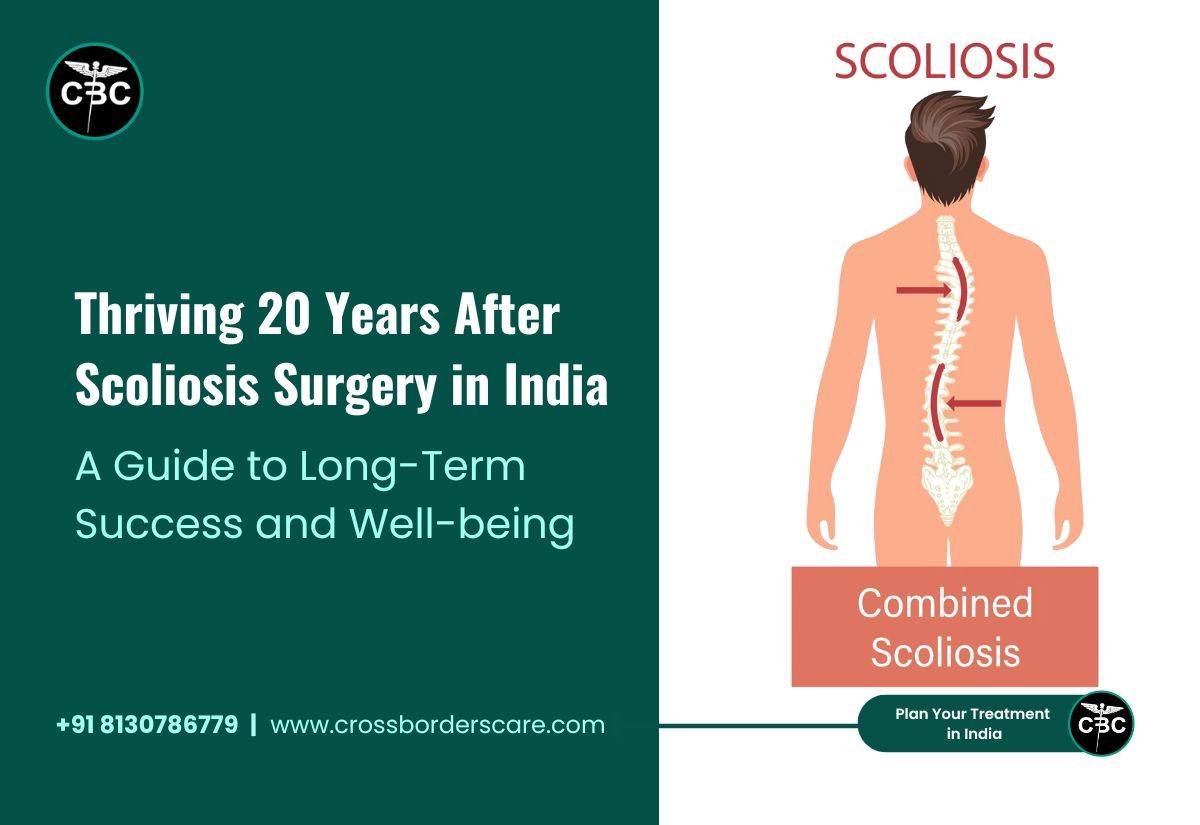Reaching the 20-year mark after scoliosis surgery in India adds a significant chapter to your life. After careful treatment, the initial recovery takes place gradually, but in the end, you will be able to live your life the way you always wanted. You will feel more flexible and in less pain.
After scoliosis surgery, most people can handle their daily activities quite well. Advanced surgical methods now allow for a satisfying and healthy life 20 years after scoliosis surgery.
In this blog by Cross Border Care, the best medical consultants in India, let us uncover the insights that reveal the possibilities that await beyond the 20-year mark post-scoliosis surgery.
Scoliosis Surgery in New Delhi: Living a Normal Life
Two decades after scoliosis surgery, living an everyday life is a reality for many. Studies have shown that over 90 % of individuals who had scoliosis surgery have seen significant improvement in their quality of life. You will be able to engage yourself in day-to-day activities and live your life to the fullest.
It is important to note that the success of scoliosis surgery in India will depend on the following factors:
- Patient commitment to rehabilitation exercises
- Adherence to medical advice by the surgeon
- Your overall general health.
Regular checkups with top scoliosis surgeons in India will help to identify any potential issues early on.
For personalized guidance, book an appointment with Cross Border Care today.
Expectations 20 years after Scoliosis Surgery
Sustained Relief
After 20 years of scoliosis surgery, there will be a remarkable reduction in pain. The effect of this surgery on providing pain relief is usually long-lasting. It gives you an excellent quality of life.
Physical Freedom
Imagine physical freedom that you may not have once thought possible at all before the surgery. As your spine stabilizes over time, you find yourself engaging in once-challenging activities more quickly.
Posture Perfection
After the scoliosis surgery in Delhi, your posture will improve. This will help you feel comfortable in your day-to-day activities and improve your alignment.
Emotional Well-being
If you’ve had scoliosis over the years, you’ll notice your tolerance to the emotional toll of scoliosis drops. This all slowly becomes second nature in that you begin to deal with the challenges and adjustments post-surgery. It also helps with better emotional well-being and positive thinking.
Daily Activities
You should do daily activities with ease, whether it’s work, hobbies, or even some chores. Hopefully, the surgery will allow you to live life generally without the restrictions granted by scoliosis.
Potential Complications
Complications can occur while they’re rare. Look out for new symptoms that may arise after the surgery. Keep an eye on the latest symptoms. Do not hesitate to consult your healthcare provider if you notice any unusual changes in your condition.
Lifestyle Adaptations
You will have to follow specific lifestyle adaptations. Make sure to exercise and follow correct posture habits. Make them a part of your daily routine, and it will help to contribute to the long-term success of the surgery.
Follow Up care
Attend regular follow-up appointments with your scoliosis surgeon in India to monitor the stability. Staying proactive with check-ups will help you maintain your spinal health. This will guide you and help you maintain a positive perspective 20 years after the scoliosis surgery in India.
What Percentage of Scoliosis Surgery is Successful?
When it comes to scoliosis surgery, the success rates are high. On average, 80 to 90 % of patients experience successful outcomes. The success of scoliosis surgery will depend on several factors:
- The severity of the condition
- The overall health of the patient
- Adherence to post-operative care
With advanced techniques and medical expertise, scoliosis surgery is an effective option for people who want long-lasting relief from spinal deformities.
Contact Cross Border Care to get in touch with the best doctors for minimally invasive spine surgery in India.





